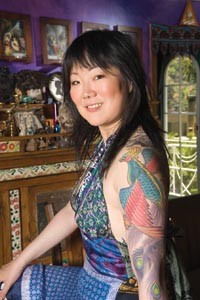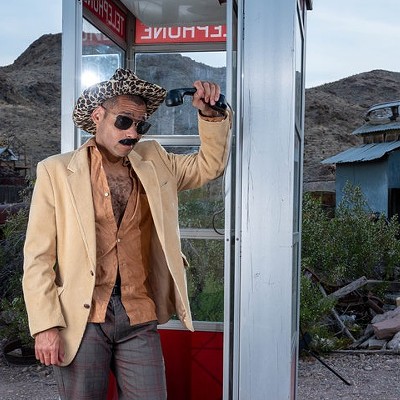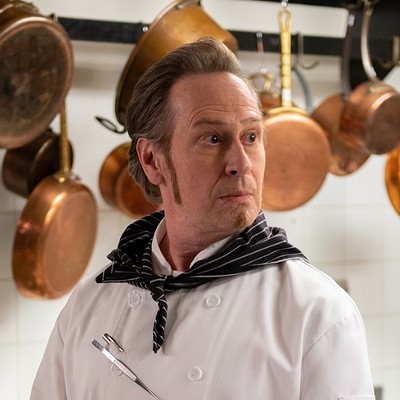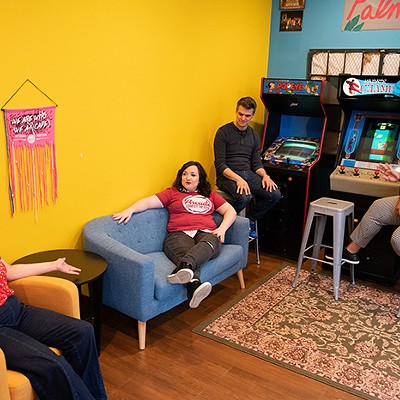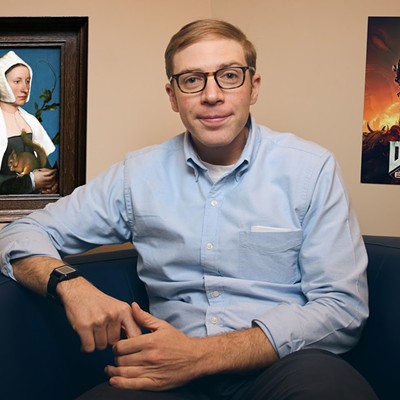Comedian Margaret Cho may have seared herself into the collective consciousness with her loving yet side-splitting renditions of her Korean immigrant "Mommy," but it's long been politics and identity issues that have been her bread and butter. During a quarter-century as a performer, though, she's had to occasionally sidestep her passions: trying to fit network television's conception of Asian-American life, for instance, in the sitcom All American Girl, and battling substance abuse and eating disorders.
She continues to evolve, though, and on March 7 brings her standup-cum-cabaret act to Homestead's Carnegie Music Hall. City Paper recently caught up with her on the road to dish about Proposition 8, learning the guitar at 40 and not giving a shit what dudes think.
So, what we can expect from you?
I'm doing standup and some comedy songs, which is fun. I'm playing guitar, trying to do some different things and it's really exciting. The show before Beautiful, which was my last big standup tour, I did a show called The Sensuous Woman where there was a dance show -- so I was doing a lot of music and dance in it.
Now I'm going to focus on music stuff and it's fun. I just always appreciated singer-songwriters, you know, people who were just there with their guitar -- it's always been the most beautiful thing and those were the people I always liked to go see.
Because I am an entertainer, I have access to other artists who I really admire and love, so I have a lot of help. I'm working with people like Grant Lee Phillips and Mark Eitzel and Jill Sobule and Jon Brion and all these amazing artists.
Standup is so not-collaborative, it's just you and the mic. Does it do you good to get out of your comfort zone?
I find that it works really well to do that. I've been a solo performer for 25 years. Now I'm getting involved with other people, and what's cool is that a lot of the people I'm getting involved with are also solo performers, so they're not used to collaboration, either. When we come together it's very exciting because it's like this vacation from doing things on our own. It's very explosive and fun.
Your comedy has become a lot more political. Are you more comfortable as a performer, or just reacting to the state of our country?
Everybody has been forced into politics in the last eight years, we really have people who were not so political before who are just now finding themselves political. It's the times, and certainly now after the election, things have changed a lot -- you know, it's just a great time to be political. My major cause is Proposition 8 in California, which is the gay-marriage ban, trying to get it repealed.
Does your being married to a man give you less authority to get riled about gay marriage? Some folks say they refuse to marry until everyone can.
I realize the importance of it, and the joy that I have in a family. I was [married] before all this went down, so it's given me more, I think, integrity around the issue.
You are one of a very few openly bisexual celebrities. Why are bi folks so invisible? Does that hurt the queer community?
You can't be really gay unless you're completely gay, you can't be queer unless you're a certain kind of queer -- it's something that exists within the mindset of the greater queer community. It's a very casual kind of invalidation [of bisexuals], it's just sort of, "Oh, they're not really ..." It's the same way that trans people often are marginalized. Any level of invisibility, whether it's bi or trans, those parts of our community need the most support, I think. We need as many people as we can get.
[Bisexuals] do pass on purpose, because they're just not embraced as much by the queer community. When you don't have that authentification from the queer community, you're reticent to step up into it. They can sort of claim the same privileges as the straight mainstream community half the time, but then in a way they're more queer than anybody else because, you know, they go both ways!
I can relate as being an Asian-American because in America, Asians are not seen as Americans and in Asia, Asian-Americans are not seen as Asian, so it's a similar kind of disconnect.
Is standup still a man's world? Are women just expected to be hot and shut up with the period jokes?
I always get bummed out if the comedy that women do is super self-deprecating, like if it's like it's a real sad thing, when they feel sorry for themselves, like they're ugly or something. I have those feelings, too, but I want to like combat that as a standup comic. So as a standup comic I always talk about how I'm just gorgeous and getting fucked all the time, because that's the truth of my life.
I think the problem in what happens with women in comedy is we're not supported by the men. So the women who are successful in comedy are women who don't give a shit about what men think and so it's always the queers! It's like me, Wanda [Sykes], or like Paula [Poundstone]: We never gave a shit about dudes, you know, so we're able to get ahead because of that.
Margaret Cho 8 p.m. Sat., March 7. Carnegie Music Hall of Homestead, East 10th Ave., Munhall. 412-323-1919 or www.ticketmaster.com

